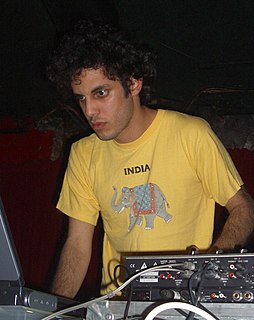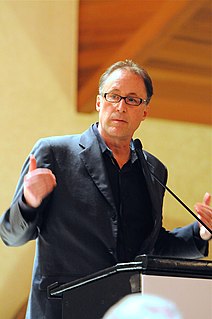A Quote by Craig Finn
Springsteen on that record started writing less about having your wind in your hair and turning the radio up and more about being dragged down by adult things. Regular people trying to get ahead. A little less mythical and romantic, and more real. It's a really spectacular record for that reason.
Related Quotes
A little more kindness, A little less speed, A little more giving, A little less greed, A little more smile, A little less frown, A little less kicking, A man while he's down, A little more "We", A little less "I", A little more laugh, A little less cry, A little more flowers, On the pathway of life, And fewer on graves, At the end of the strife.
I feel less and less like that every year, and I guess maybe even more so with every new record that I put out. I just think, as the years go by, it's harder and harder to really find a reason to be annoyed that you made something that people want to continuously talk about. Certainly there are contexts in which the record can be discussed which will get me on the defensive and make me want to put some kind of calibration or some kind of context on what the record means in relation to my career as a whole.
Over the last thirty years or so, I have definitely become more enlightened about corners of the social spectrum that I had less exposure to as a young man. I've interacted with more poor people, more minorities and more sexual minorities. As you get more people from different backgrounds involved in your life, you get a broader perspective and you're less cavalier about your opinions.
I was able to notice in a very early stage, there were discrepancies between the people who are writing the songs and discrepancies about the self that I was writing about. I was feeling that there were all these different people, both writing the record and having the record being written about them, even though ostensibly it was me sitting down and documenting a series of life experiences. Part of that, when I recognized this unconscious thing I was doing, was about these spaces, about these gaps.
When you're young, your perception of what it means to be a writer is often less about the writing and more about what seems to be the accompanying life: speeches and travel and hanging out with other writers. You think that when you get published, your life will clarify itself to you somehow. But when you don't get published until you're middle-aged you know who you are already, and your life expands to make room for your writing, rather than orbiting around it. You realize that there's no one way to be a writer, and that the job is less of an identity and more of a vocation.
Many self-employed people provide services that are nonessential. So whether you get your hair done less or your hair cut less, or your nails done less, as a writer and a speaker I was very clear that corporations weren't being as open and as generous and I wasn't getting the kind of work that I usually got.
You just do the best you can. It doesn't necessarily mean that you have to get worse the more you do it. It can get better, I think... aspects of it, anyway. I mean, I don't write as much as I used to. But I don't do a lot of things as much as I used to. So that's the natural order of things, too. You're more or less living in the present. You're just trying to get that next song, whatever it is. And not think too much about what happened on the last record, or the record you made 20 years ago, because those are over with. Those are done.
The forties are the time when you begin to take notice of certain aches and pains. Your body and brain behave in inexplicable ways: Less hair on your head, more in your ears and nostrils. More memories in the bank, less synaptic firepower with which to access them. Gravity has started to show its inexorable pull.
The idea is to make the script out of a political analysis and then to convey that - sometimes in poetry, sometimes science, sometimes all it takes is a film. The film itself is less and less spectacular because I think very strongly now the more spectacular you are, the more you are absorbed by the things you are trying to destroy.
Say who you are, really say it in your life and in your work. Tell someone out there who is lost, someone not yet born, someone who won’t be born for 500 years. Your writing will be a record of your time. It can’t help but be that. But more importantly, if you’re honest about who you are, you’ll help that person be less lonely in their world because that person will recognise him or herself in you and that will give them hope.
Writing fiction lets you be a little more emotional and unguarded, a little freer. Writing fictional characters is also really different from writing about real people. In nonfiction, you can only say so much about the people you interact with. After all, they're actual people, their version of their story trumps yours. In a novel, you can build a character, using certain parts or impressions of someone you know, and guessing or inventing others, without having to worry that your guesses or memories or inventions are wrong.



































